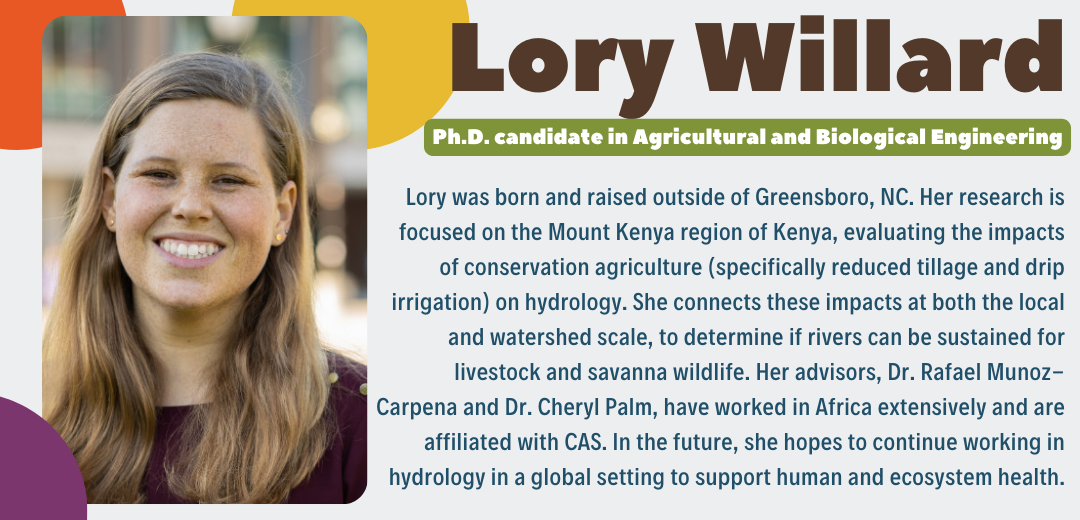Lory is a 5th-year Ph.D. candidate in Agricultural and Biological Engineering. She obtained a B.S. and M.S. from Virginia Tech in Biological Systems Engineering. She traveled to Uganda several times as the lead of an Engineers Without Borders project and gained a deeper understanding of water issues prevalent outside of the United States. After several years working in environmental consulting and government on stream restoration and green stormwater infrastructure projects, she decided to pursue a Ph.D. and hoped to find a project that would provide international experience.
Lory joined Dr. Rafael Munoz-Carpena’s and Dr. Cheryl Palm’s labs in the fall of 2018. In 2019 she took her first trip to Laikipia County, Kenya, with Dr. Palm and was a teaching assistant for Dr. Palm’s Sustainable Agriculture in the Tropics course. While there, she collected preliminary data for a proposal submission to The Nature Conservancy, which led to research funding to continue her work there.
Her work involves scaling up localized effects of adopting sustainable agricultural intensification practices to determine whether they are effective at the watershed scale. Laikipia County, which lies north of Mount Kenya, is perfect for this research because some farmers are adopting reduced tillage and drip irrigation as they look ahead to climate change impacts, and the rain shadow effect of the mountain means that within a short distance of 50 km, some farms receive up to 1600 mm of rainfall per year while others receive as little as 500 mm. Therefore, the various management practices can be tested in a range of climatic conditions, and practices could be recommended for specific rainfall zones in the future. To accomplish this research, the team has collected soil samples from farms throughout the region, conducted infiltration tests, and installed stream and rain gauges to monitor flows for up to 18 months. These data will be used to test different agricultural development scenarios using a hydrologic model developed by Lory and Dr. Munoz-Carpena, and ultimately to assess whether adoption of these practices could reduce drought prevalence for savanna livestock and wildlife, including the endangered Grevy’s Zebra.
Upon graduation, Lory hopes to continue working at the intersection of humans, hydrology, and ecosystems, preferably in a global setting.
